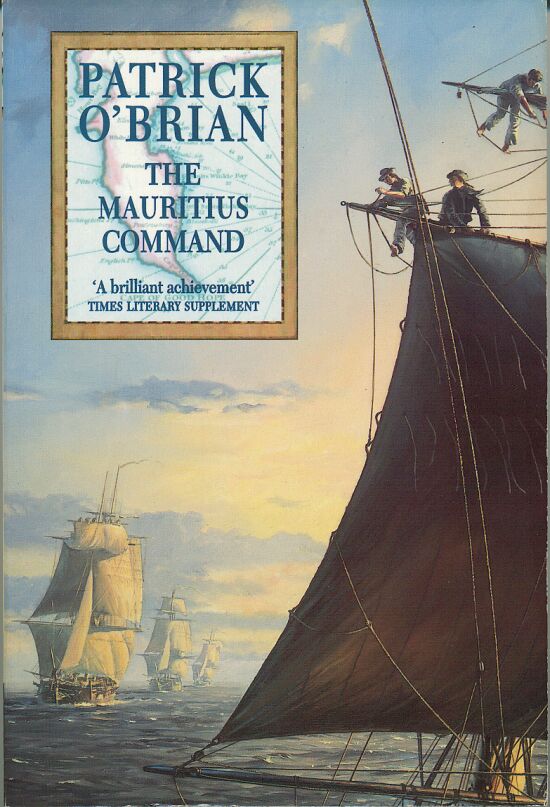I was recently in our local (to where I work) Big Box Book Store and noticed a couple of changes. For one, jackhammers were at work (behind curtins), apparently tearing out the Starbucks that dominated the center of the bookstore. Whether it will be replaced by another chain or by the Big Box's own effort, I do not know.
Then there is the science fiction section. It's undergone several evolutions of late. It has been moved, from the edge of the center (dominated by that coffee chain) to one end of the store. On first glance, there's more room...
But, looking closer, you notice that literature is losing ground.
There are six shelves dedicated, according to the signs, to science fiction and fantasy.
Manga has expanded from one quarter of one shelf to almost two full shelves (the last quarter of the one shelf is dedicated to science fiction/fantasy related computer game guidebooks). Half of one shelf is dedicated to media-related releases (
Star Wars is holding steady,
Star Trek and other television shows seem to be declining, most of the shelf is dedicated to novelizations of game-related books). One full shelf is "graphic novels", comic books to the rest of us.
Half of one is new releases, dominated by the various categories such as media-related. Half of one shelf is new releases, split between paperbacks and trade paperbacks on one shelf and hardcovers on another with the paperbacks dominated by media-related releases (since I don't see as many of these on the pure media-related shelf, I assume they come and go pretty fast).
So that's one and a half plus one half plus one half plus one half...equaling two and a half out of five...leaving two and a half to the literature of science fiction and fantasy. Or does it?
Looking closer, we find a lot of media books there. True, they are by "real authors", as opposed to folks who seem to specialize in that sort of thing. But, let's toss them out. Then there are series books. Now, I
like series books. I cut my "eye teeth" on series books such as "Doc" Smith's
Skylark and
Lensman books. Many of my ongoing reading projects are revolving around various multi-book series, both science fiction and fantasy. But the shelves seem to be dominated by endless series of endless fantasies (
Robert Jordan and
Laurell K. Hamilton and other imitators). How much is actually science fiction?
Look who is fading from our shelves.
Poul Anderson.
Robert A. Heinlein.
Isaac Asimov.
Arthur C. Clarke, for crying out loud. He's not dead, but he might as well as be for the way he is treated by the publishers and the Big Boxes. Never mind the lesser lights of folks like
Alan E. Nourse. If it weren't for the efforts of a few
publishing houses, we wouldn't see the likes of
Christopher Anvil or
Andre Norton or
Cordwainer Smith or
E.E. "Doc" Smith.
Damn. I can hardly find
Douglas Adams anymore. Never mind
Jack L. Chalker,
Harlan Ellison,
Brian Aldiss,
Roger MacBride Allen,
Iain M. Banks,
M.A.R. Barker,
Gregory Benford,
A. Bertram Chandler,
L. Sprague de Camp,
John Brunner,
Raymond Z. Gallun,
David Gerrold,
Larry Niven,
Jerry Pournelle,
H. Beam Piper,
Charles Pellegrino,
George Zebrowski,
Frederik Pohl,
Jack Williamson,
Spider Robinson,
Eric Frank Russell,
Fred Brown,
Edgar Rice Burroughs,
A. Merritt,
H. Rider Haggard,
A.E. van Vogt and others.
My God, I can't find a single volume by
Clifford D. Simak. Have we forgotten so much? My God, does nobody read
City any more?
Note. Not all of those names are dead. They still write. They still publish. Where are their books?
Am I being a curmudgeon? Every field that I have some sort of peripheral interest or acquaintance with (e.g., model rocketry or model railroading or gaming, to name three) yells about the "graying of the hobby", how "kids these days" just aren't doing what their parent's once were interested in.
Science fiction is literature, though. Those who hold the
"canon" sacred may not want to think of it, but it is literature. Literature, I feel, shapes our lives, influences the way we think and act throughout our lives. Can manga do that? Games? Anime? RPG's?
Will any of these things lead to reading? Or do all these multi-media forms,
SMS, the
BlackBerry,
e-mail, and other new (new from the perspective of the long-term) forms of expression/communication foretell the "decline of civilization".
Comments welcome. I'll just shut up now,
retreat to a book written with a pen (long-hand) and wait to see if I've made sense or I just need to consume more coffee.

